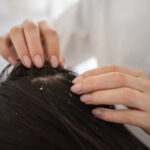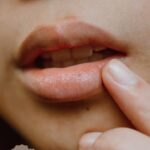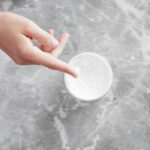
Dandruff shampoo might be helpful for treating certain types of acne, particularly Malassezia (Pityrosporum) folliculitis, also known as fungal acne. This is because many dandruff shampoos, like Head & Shoulders, contain zinc pyrithione, an ingredient that inhibits yeast growth—the cause of both dandruff and fungal acne.
However, most people suffer from acne vulgaris, a condition caused by a buildup of bacteria, dead skin cells, and sebum (oil) on the skin rather than yeast overgrowth. Therefore, dandruff shampoo is unlikely to be effective for the majority of acne cases.
Does Dandruff Shampoo Work for Acne?
While dandruff shampoo can help clear acne in some instances, its effectiveness is limited. Dr. Julia Riley, an assistant professor of dermatology at the Northwestern University Feinberg School of Medicine, explains that zinc pyrithione, the active ingredient in dandruff shampoo, may be effective for treating fungal acne.
Fungal acne is caused by an overgrowth of Malassezia furfur, a type of yeast that lives on the skin. This same yeast also causes dandruff, and zinc pyrithione works by suppressing yeast growth. However, dandruff shampoo is unlikely to be effective for acne vulgaris, which is caused by clogged hair follicles due to bacteria, dead skin cells, and oil.
Is It Safe?
Using dandruff shampoo to wash your face is generally safe if you have fungal acne. However, if you have atopic dermatitis (eczema) or dry skin, it is advisable to consult a dermatologist before using dandruff shampoo.
Certain soaps, including those with zinc pyrithione, can dry out or irritate the skin. This can lead to cracks that bleed and are prone to infection, itching, and tightness. Dry skin can also exacerbate eczema symptoms such as:
- Blisters that ooze and crust
- Changes in skin color
- Ear discharge and bleeding
- Skin redness and inflammation
- Thick, leathery skin
How To Use It
When choosing a dandruff shampoo for acne treatment, look for an unscented option free of irritating chemicals, especially if you have eczema or sensitive skin. To use dandruff shampoo on your face:
- Apply the shampoo to your face using your fingertips.
- Leave it on your skin for a few minutes before rinsing it off with lukewarm water. Avoid scrubbing, as this can irritate your skin.
- Pat your face dry gently with a towel.
- Apply a moisturizer to hydrate your skin.
Other Acne Treatments
There are other, more effective treatments for acne that are also gentler on the skin compared to dandruff shampoo. These include:
- Antibiotics: Oral antibiotics (e.g., amoxicillin) or topical creams (e.g., clindamycin) can help eliminate bacteria.
- Antifungals: Oral antifungals have been found to be effective for treating fungal acne.
- Hormone therapy: Birth control pills and spironolactone can help those with hormonal acne.
- Photodynamic therapy: A chemical is applied to the skin, which is then exposed to blue light to activate the treatment.
- Procedures: Chemical peels, dermabrasion for scar removal, and cortisone injections for cysts are options.
- Retinoids: These vitamin A derivatives, available as creams or gels (e.g., tazarotene, tretinoin), are effective. Isotretinoin, an oral retinoid, may be recommended for severe acne.
- Self-care: Washing your face once or twice daily and after exercising, using noncomedogenic products, and avoiding picking at your face or leaving makeup on overnight are helpful practices.
- Skincare products: Look for ingredients like adapalene, benzoyl peroxide, resorcinol, salicylic acid, or sulfur, which help reduce bacteria and excess oil or peel the top skin layer.
It’s important to note that acne treatments generally take four to six weeks to show improvement and up to three months to clear acne completely.
By following these guidelines, you can effectively manage acne while ensuring your skin remains healthy and irritation-free
A Quick Review
Dandruff shampoo, particularly those with zinc pyrithione, may help treat fungal acne by inhibiting yeast growth. However, it’s ineffective against acne vulgaris, which is caused by bacteria and oil. For most acne types, traditional treatments like antibiotics, retinoids, and hormone therapy are more effective. Consult a dermatologist, especially if you have sensitive skin or eczema, before using dandruff shampoo on your face.











